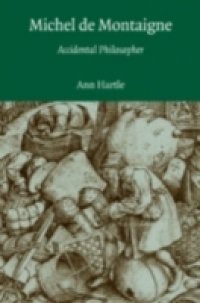Michel de Montaigne, the inventor of the essay, has always been acknowledged as a great literary figure but has never been thought of as a philosophical original. This book treats Montaigne as a serious thinker in his own right, taking as its point of departure Montaigne's description of himself as 'an unpremeditated and accidental philosopher'. Whereas previous commentators have treated Montaigne's Essays as embodying a scepticism harking back to classical sources, Ann Hartle offers an account that reveals Montaigne's thought to be dialectical, transforming sceptical doubt into wonder at the most familiar aspects of life. This major reassessment of a much admired but also much underestimated thinker will interest a wide range of historians of philosophy as well as scholars in comparative literature, French studies and the history of ideas.

